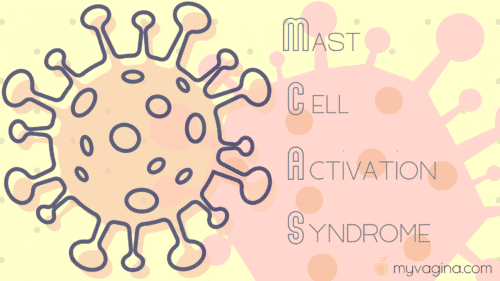Mast cell activation syndrome (MCAS)
MCAS is a condition whereby the histamine-producing mast cells across the body are activated, with very uncomfortable results.
Got vagina problems? Check for food intolerances
Food chemicals, even naturally occuring types, can throw your system out and leave you with continuous health problems, including vaginal problems.
Understanding methylation, MTHFR and homocysteine
Methylation can be impaired if you've tested positive for the MTHFR gene, resulting in high homocysteine levels.
Stress urinary incontinence
Stress urinary incontinence is a condition whereby urine leaks when you laugh, cough or sneeze, and if caught early enough, may be completely reversible.
Urinary incontinence
Urinary incontinence is the condition whereby urine leaks out without your permission. This can affect women for many reasons, with weak tissue and pelvic floor muscles being the primary cause.
Escherichia coli (E. coli) in urinary tract infections
We explain E. coli and how it works in urinary tract infections.
Treatments for lax vaginal, pelvic or urinary tissue – ‘non-surgical vaginal rejuvenation’
If you have a loose vag or stress urinary incontinence, or know someone who does, there are now noninvasive (nonsurgical) ways to treat these issues from the cells up.
The robotic da Vinci sacrocolpopexy surgery (for uterine or vaginal prolapse)
This procedure involves inserting mesh in a pelvic surgery using a specialised robot, with a surgical team present.
Interstitial cystitis
Interstitial cystitis is a painful bladder condition with no known cause, whereby the bladder becomes inflamed and painful. There are a variety of treatments available, but no total cure.
Urge urinary incontinence
Urge urinary incontinence is a condition where the urge to urinate is strong and sudden, because it is caused by a bladder muscle spams. Urge urinary incontinence is usually caused by a an underlying condition, but it can be triggered by a fright.
Bladder retraining
Retraining your bladder sometimes needs doing when there are interruptions to the normal behaviour of your bladder. This might be due to weakness, infections, or damage to the area.
Detrusor sphincter dyssynergia (DSD)
DSD occurs when there is damage to the spinal cord or brain interrupting the signals between the brain and the bladder, so the two don't work together anymore.
The neurogenic bladder
A neurogenic bladder means malfunctioning or 'broken down' nerves that cause the bladder to function improperly in the storing and expulsion of urine from the body.
Bladder cancer
Here we overview the different types of bladder cancer and their treatments. The most common symptoms of bladder cancer are bloody urine, urinating frequently, with urgency, and burning or pain. Older women are more at risk, but bladder cancer can happen to anyone.



